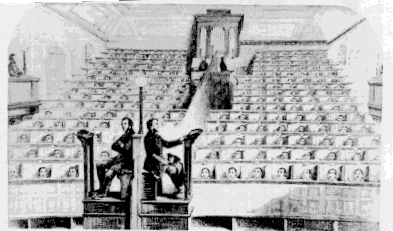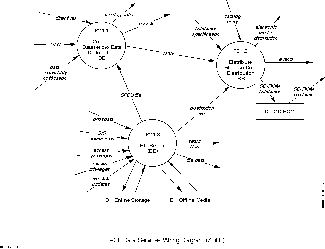

The goal is to offer a broad, self-contained introduction
to all aspects of language and linguistics, suitable for undergraduates with
a wide range of backgrounds and intereests. General information about course
content is available from a brief
description . Details can be gotten from the schedule
and the lecture notes that are linked to it.
Although it is not now a prerequisite for other courses in linguistics at Penn , this course will prepare you to get more out of any other linguistics courses you decide to take. Here is a link to available home pages of other Penn linguistics courses. Here is the complete list of Penn linguistics courses.
In addition to formal course work in linguistics at Penn, there
are often opportunities for independent studies, research projects, and even
paying research-related jobs. Contact the instructors for further information
if you are interested.

Each student should also participate in one recitation sections each week. The number of recitation sections will depend on the enrollment. The purpose of the recitation sections is to provide students with a forum for discussion and an opportunity to ask questions about lectures, readings, homework and quizzes.
The instructors can be reached by email , either to answer questions directly or to set up individual appointments.
There will be a midterm (on October 21), and a final exam (in December).


Other introductory linguistics texts include
Contemporary
Linguistics by O'Grady, Dobrovolsky and Aronoff;
Linguistics
by Akmajian, Demers, Farmer and Harnish; and
An
Invitation to Cognitive Science: Language by Gleitman and Liberman.

This email may sometimes announce changes in assignments, so you should read your mail regularly.
The course web site and its links are
even more important! The most important link is the schedule
, which will tell you what topics will be discussed in each lecture, and what
pages in the text should be read when. It also will contain links to the lecture
notes for the course.
A lot of necessary material, including lecture notes and some readings, will only be available through the web. While you are of course welcome to print these pages out if you want, we will not normally print them out for you. Some of the pages will be interactive, and therefore not printable.
If you don't have access to a computer with internet access
and a reasonably new web browser, or if accessing the internet is a problem
for you for any other reason, please let us know right away!
 "How much of this stuff will be on the exam?"
"How much of this stuff will be on the exam?"The course texts are full of information, and the on-line lectures notes have a lot of links, which have a lot of links, which have a lot of links . . .
Even one level down, you will find a lot of detailed material, and some of it is complex or difficult. For instance, the online lecture notes on Approaches to the study of language mention Norbert Wiener, and include a link to an American Mathematical Society page describing his contributions to mathematics. The same lecture reference a fairly long poem by Walt Whitman .
Relax, you aren't responsible for anything on the AMS page -- though it would be a fine idea to learn any amount of it that you want! Nor are you required to memorize the Whitman poem, or even read it all the way through -- though it's well worth reading.
Quiz and exam questions will cover only material in the text, in lectures, in homework assignments, in the on-line lecture notes, and in linked pages whose contents the lecture notes explicitly say that you should learn. You should read and understand all of the Fromkin and Rodman book. With respect to the detailed material in the Cambridge Encyclopedia, use common sense in judging what you need to learn and what you can treat as background material. We will provide study guides for the midterm and the final.
Of course, you'll get more out of the course if you learn more
than exactly what will be tested on the exams, and a good way to do this is
to follow hyperlinks to a greater depth, whether on the web or in the library.
[On to the next lecture] ![]()